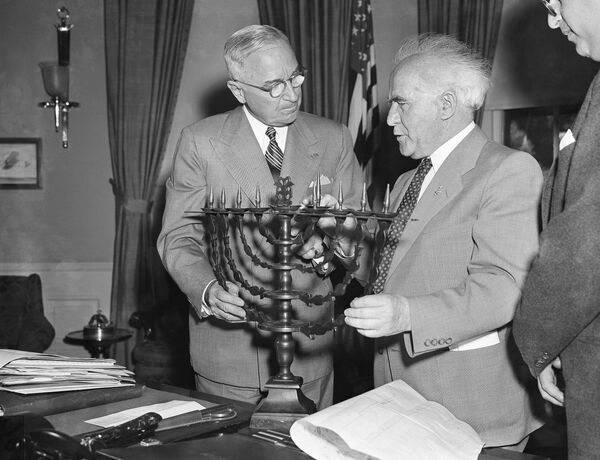Thursday marked the 72nd anniversary of the establishment of the State of Israel, which dates back to 14 May 1948. The event took place shortly before the UK’s mandate expired in May 1948, 30 years after British troops entered what was then known as the Land of Israel, a geopolitical entity established in 1918 in the region of Palestine.
In his article published on Saturday, Haaretz contributor Meir Zamir focused on what prompted Israel’s first Prime Minister David Ben-Gurion to declare the establishment of the Jewish state.
Touting the decision’s historical importance, the author, who is also a professor emeritus at Ben-Gurion University of the Negev, recalled that the motives which prompted the prime minister to push for a declaration of Israeli statehood continue “to be shrouded in fog”.
Zamir suggested that the prime minister could either act at random and adhere to “almost messianic redemption” or stick to “a judicious assessment of the situation derived from precise intelligence and a thorough examination of the capabilities of the forces of the Yishuv, the pre-state Jewish community in Palestine, to repel the Arab offensive”.
The author referred to documents that were recently obtained from French and Israeli archives and which he said point to the second option, even though Ben-Gurion knew that the declaration of a Jewish state “would lead directly to war with the Arab states”.
The documents specifically indicate that during a meeting of Israel’s interim government, also known as Minhelet Ha’am (the “people’s administration”) on 12 May 1948, then-Yishuv leader Ben-Gurion got secret information from French intelligence that the leaders of the Arab states, supported by the British military, had decided to stage a blitzkrieg attack and then invade Israel, according to Zamir.
“It is learned from an authoritative source that the Arab states have made a final decision to attack together and simultaneously on May 15. They have decided to do so even if it entails a risk of failure. They are relying on a lack of heavy weapons and of Jewish air power. Tel Aviv will be attacked immediately from the air”, one cable received by Ben-Gurion during the meeting reads.
Zamir described it as “supremely important strategic information” that he suggested formed “the crux” of Ben-Gurion’s considerations on whether to postpone the declaration of the Jewish state’s establishment in order to buy time, or vice versa.
“A leader who knows that he and his movement are a target of covert, subversive activity possesses an advantage: He can thwart the adversary’s intentions. This was certainly true in the case of Ben-Gurion, who knew about the British officers’ intention to foil the establishment of a Jewish state”, Zamir added.

The author argued that Ben-Gurion made the decision proceeding from “a deep conviction that this was a historic moment for the Jewish people and the Zionist movement”.
According to Zamir, the move was based on “a realistic situation appraisal, on up-to-date intelligence about the enemy and its intentions, and on an assessment of the ability of the Yishuv’s forces to contain a lightning attack by the Arabs and launch a counteroffensive”.
Ben-Gurion's declaration of the Israeli state’s establishment was opposed by Britain and welcomed by then-US President Harry Truman and then-Soviet leader Joseph Stalin, who recognised Israel’s independence later on 14 May 1949.
The first Israeli prime minister’s move was followed by the First Arab–Israeli War, with Tel Aviv signing armistice agreements with Egypt, Lebanon, Jordan, and Syria in 1949.





